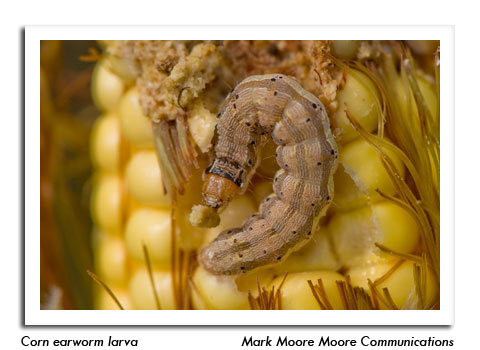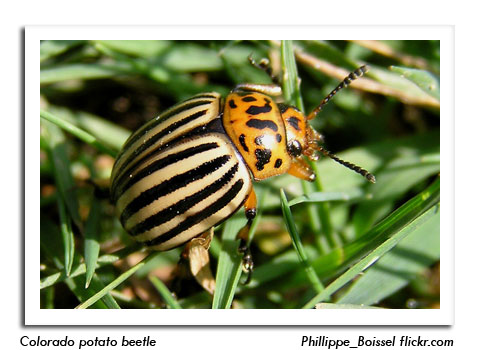
 |
|
|
Vegetables
Volume 58 Number 7 Date 06/13/2013 CORN EARWORM - A cumulative total of 223 moths have been registered in the Janesville pheromone trap since May 30. These very early migrants are unlikely to impact sweet corn, but peas, peppers, cabbage and other vegetables may be at risk later this month. Corn earworm larvae are surface feeders on most garden plants and can be easily removed by hand. Additionally, the bacterial pesticide Bacillus thuringiensis (Bt) applied periodically before the larvae start burrowing is an effective form of control. SLUGS - Surplus rainfall this season has favored activity by these nocturnal pests. Light defoliation has been noted in scattered cornfields in the southern and central areas, and problems are expected to increase if wet weather continues. Control may be required in some instances to reduce field crop or home garden damage. COLORADO POTATO BEETLE - Overwintered adults are now colonizing potato fields in the Central Sands region of the state. The bright orange-yellow eggs deposited by the females should be apparent on the undersides of leaves in the week ahead. At normal June temperatures, the eggs hatch in 4-8 days and larvae mature to the third instar stage in another 5-9 days. These early individuals are usually less destructive than the summer generation. Treatment is justifiable for potatoes when defoliation of pre-flowering, 6-8 inch plants surpasses 20-30%. -- Krista Hamilton, DATCP Entomologist 

|
|
|